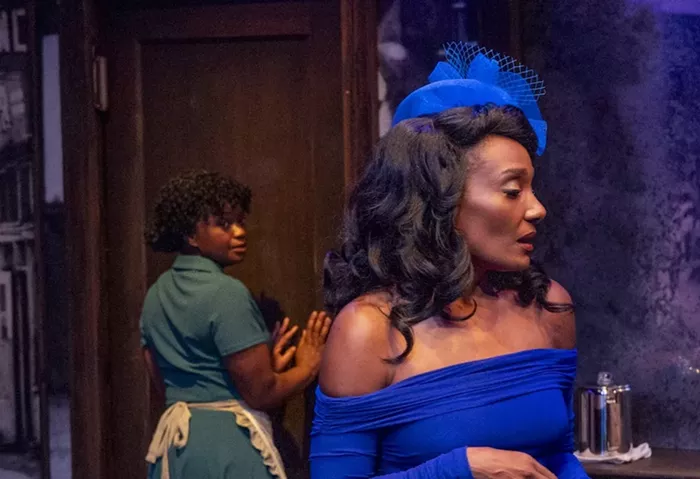
"In Dominique Morisseau's Paradise Blue, the year is 1949, Detroit's Black Bottom neighborhood hasn't yet been demolished to make way for a highway, and the city's jazz joints are piping with potential. That heat draws femme fatale Silver (Cycerli Ash) from far away New Orleans, and she saunters into the play's Paradise Club with a knowing eye, asking for a room to rent."
"The fault for this lies with Blue (Mikell Sapp), the club's owner and trumpet player. An inheritor of his father's club, name, and controlling temperament, Blue quietly wrestles one more demon: He's considering selling Paradise Club to make way for a highway. Paradise Blue is a noir work that unfolds at an important juncture in Detroit's history, just before Mayor Albert Cobo's highway project displaced many of the area's Black residents and bisected what was left of Black Bottom and the adjacent Paradise Valley neighborhood."
Paradise Blue is set in 1949 Detroit's Black Bottom, where jazz clubs pulse with potential even as urban renewal looms. Silver, a femme fatale from New Orleans, arrives seeking lodging at the struggling Paradise Club. The club's decline is tied to Blue, the inheriting owner and trumpet player, who contemplates selling the venue for a highway. Musicians like idealistic Pumpkin, veteran pianist Corn, and angry drummer P-Sam react differently to the threat, with P-Sam confronting Blue about communal stakes. The play carries a noir tone and evokes the impending displacement caused by Mayor Cobo's highway project.
Read at Portland Mercury
Unable to calculate read time
Collection
[
|
...
]